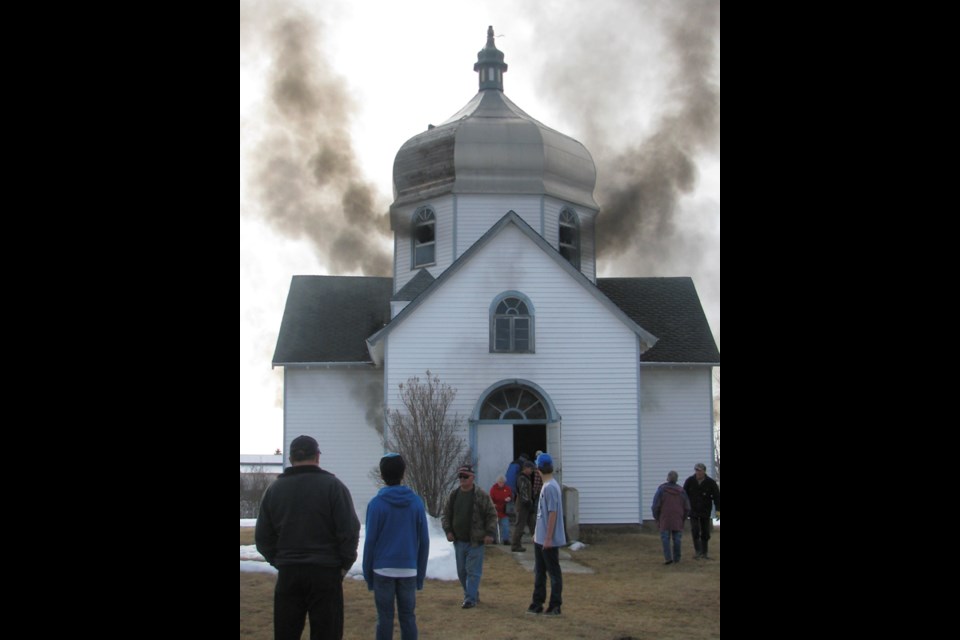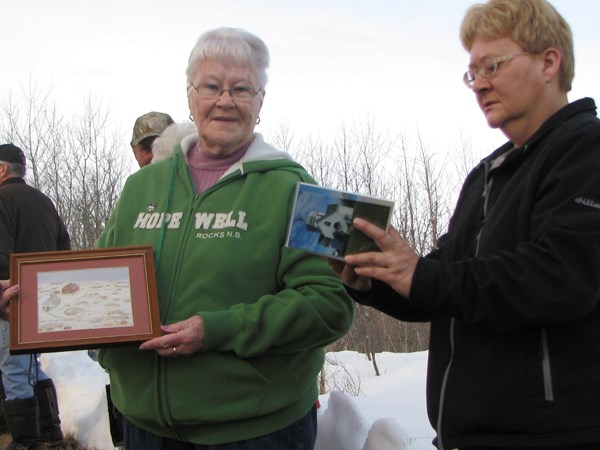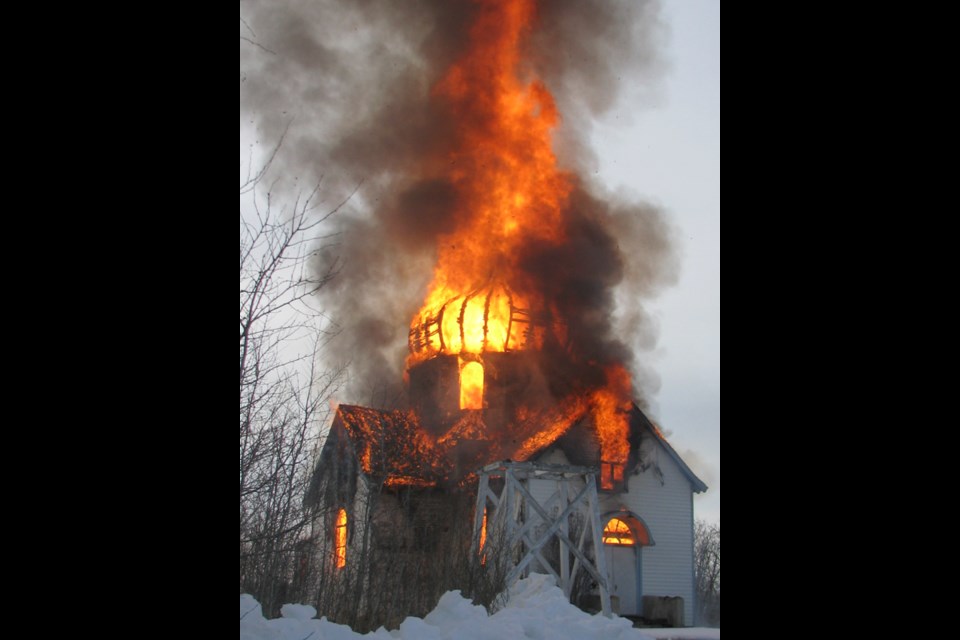Friday, April 26 dawned warm and calm. It seemed as if spring had finally arrived. But for those gathered at the site of the Holy Ghost Ukrainian Orthodox Church at Whitkow that morning, it was not a day to greet the new, but to say goodbye.
It was the last for the structure, but not the memory, of the historic church with its distinctive octagonal dome. While the building itself was destroyed by a controlled burn, its ashes will be buried this summer and a monument will be erected in its place.
The man tasked with setting the flames, Julian Goyan, told the Regional Optimist there had been no alternative left to the committee in charge of the church that has been closed since 1998.
The problem was the dome, said Goyan. The metal was becoming detached, its structure was rotting and they had been unable to find someone to fix it, he said. The leaky dome was causing deterioration of the building, he indicated, so the endangered contents were removed, many relocated to Saskatoon, and eventually the decision was made to bring the building to the end of its useful life.
"You've got to burn it," said Goyan. "It's required by the church."
If it's taken apart, he explained, the material can't be considered ordinary salvage; that would be disrespectful.
The Ukrainian Orthodox Church of Canada's Policies and Procedures Manual states church structures are to be disposed of in the most pious and solemn manner possible.
"If at all possible they should either be burned, with the ashes buried, or disassembled and buried. A cross, cairn, or other marker should be raised at the place where the Holy Table stood," church policy states.
The policy allows that when it is impossible to either burn or disassemble the structure, it should be sold, if at all possible, to another Orthodox, Christian or other religious body, to a service club or to another group which will treat it with due respect.
But, said Goyan, the church building couldn't be moved with the rot that had set in, so it wasn't possible to sell it for relocation.
This coming summer, he said, they will bury the remains and the site will be marked with a monument, as prescribed by Ukrainian Orthodox Church of Canada policy.
Built in 1933
The church was built in 1933, funded by people of the Orthodox faith in the Whitkow area.
In her short essay on the history of the church, former Whitkow Hotel proprietor Ann Ewanchuk, daughter-in-law of the primary builder, Nick Ewanchuk, states, "With the leadership of Rev. Fr. Podulsky, they had the church registered as Ukrainian Orthodox of the Holy Ghost."
The first service was held in April of 1934. It was a 4 a.m. Easter service by Rev. Fr. Ulyon, writes Ann. The first executive was Nick Horbay, president, Fred Tokaryk, secretary, Mike Saranchuk, treasurer and Nick Ewanchuk, priest server (holding this position till his passing in 1957). Other member helpers, she writes, were Bill Woytiuk, Alexander Goyan and Sylvester Swystun.
The church was closed in 1988, wrote Ann, adding a few short services had been held since then, in particular those held as part of the funerals of Mary Ewanchuk, the wife of the builder, and their son Uhan, Ann's husband.
In 2001, the church was nominated to become a Municipal Heritage Property through the Rural Municipality of Round Hill. The Canadian Register of Historic Places describes the church's heritage value as residing in the character-defining elements that reflect its status as a cultural landmark, including its location on its original position and the cross on the dome. It also cites its Byzantine Revival-inspired architecture, including the octagonal central dome, rose windows, rounded archways, symmetrical composition and the layout in the shape of a crucifix, iconic painting in the interior, the icon screen separating the sanctuary and nave, and stand-alone bell structure.
The RM of Round Hill was asked to rescind the heritage status this past year clearing the way to determine the building's fate.
"It went through the municipality," said Goyan. "They put it in the paper then voted on it."
Through tears the morning of the burn, church committee member Darcia Tkachuk said the end of the church was not something she could bring herself to talk about.







